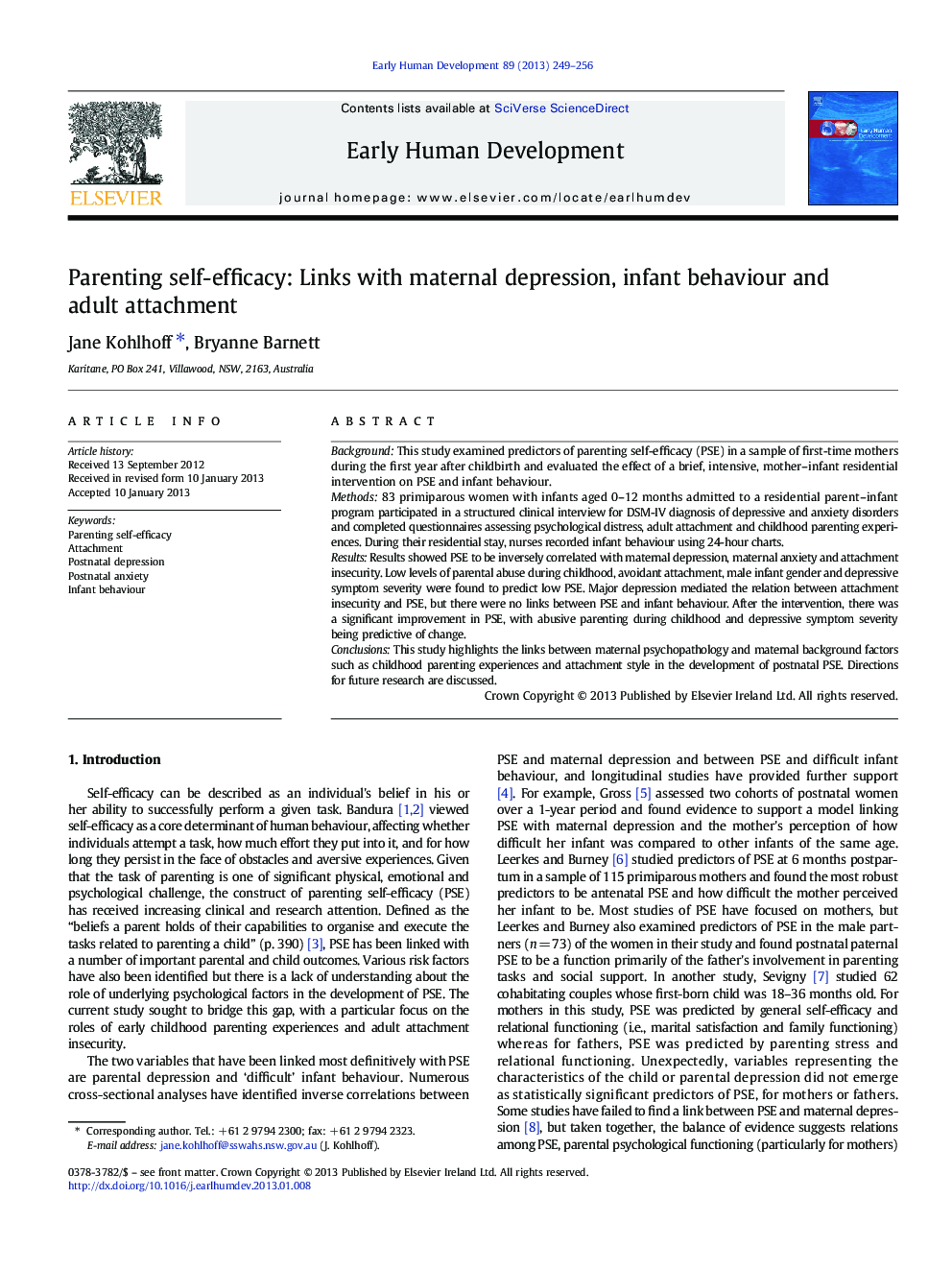| Article ID | Journal | Published Year | Pages | File Type |
|---|---|---|---|---|
| 3917097 | Early Human Development | 2013 | 8 Pages |
BackgroundThis study examined predictors of parenting self-efficacy (PSE) in a sample of first-time mothers during the first year after childbirth and evaluated the effect of a brief, intensive, mother–infant residential intervention on PSE and infant behaviour.Methods83 primiparous women with infants aged 0–12 months admitted to a residential parent–infant program participated in a structured clinical interview for DSM-IV diagnosis of depressive and anxiety disorders and completed questionnaires assessing psychological distress, adult attachment and childhood parenting experiences. During their residential stay, nurses recorded infant behaviour using 24-hour charts.ResultsResults showed PSE to be inversely correlated with maternal depression, maternal anxiety and attachment insecurity. Low levels of parental abuse during childhood, avoidant attachment, male infant gender and depressive symptom severity were found to predict low PSE. Major depression mediated the relation between attachment insecurity and PSE, but there were no links between PSE and infant behaviour. After the intervention, there was a significant improvement in PSE, with abusive parenting during childhood and depressive symptom severity being predictive of change.ConclusionsThis study highlights the links between maternal psychopathology and maternal background factors such as childhood parenting experiences and attachment style in the development of postnatal PSE. Directions for future research are discussed.
